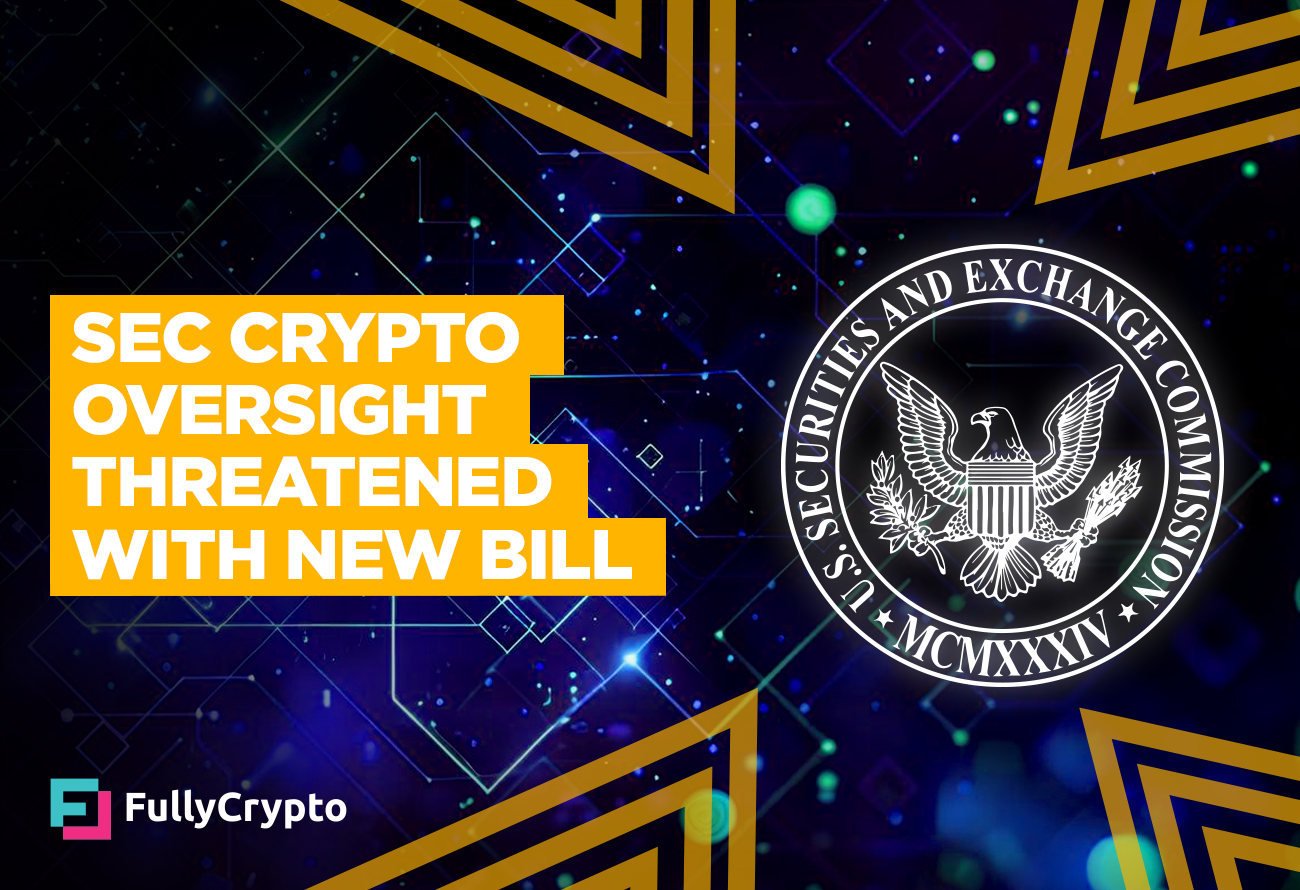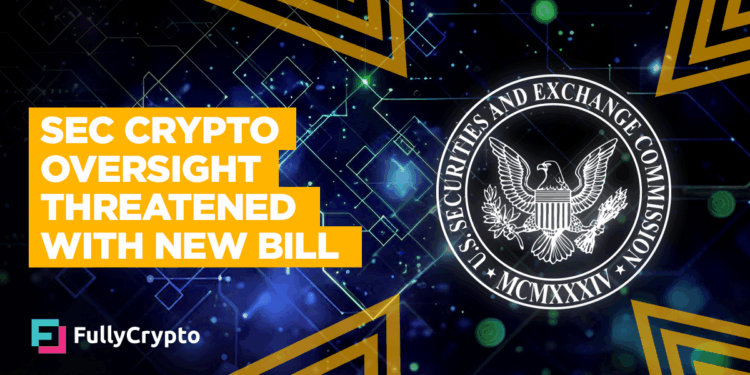
Reading Time: 2 minutes
- Lawmakers have proposed significant changes that would exempt most digital assets from Securities and Exchange Commission (SEC) jurisdiction
- The bill has introduced a new classification called “digital commodities,” shifting oversight to the Commodity Futures Trading Commission (CFTC)
- Blockchain systems deemed “mature” and operating under decentralized governance would enjoy streamlined regulatory treatment
A new draft bill from the House Financial Services Committee has taken a major step in redefining how digital assets are regulated in the United States. The proposed legislation would overhaul key parts of securities law, carving out an exemption for most major cryptocurrencies from Securities and Exchange Commission (SEC) oversight. Instead, these assets would fall under a new framework led by the Commodity Futures Trading Commission (CFTC), although questions still remain over the definition of a “mature” blockchain.
A Shift in Regulatory Oversight
The draft bill proposes a fundamental shift in how U.S. regulators approach crypto markets, taking some power away from the SEC. Under the proposed legislation, digital assets that meet certain criteria—such as being part of a “mature blockchain system” not controlled by any individual or centralized group—would be considered “digital commodities” rather than securities. This reclassification removes them from the SEC’s regulatory domain and places them under the CFTC’s purview.
Section 201 of the draft addresses how “investment contract assets” are to be treated, stating that once a digital asset becomes “sufficiently decentralized” or reaches “maturity,” it should no longer be regulated as a security. This effectively reinterprets the Howey Test and its application to tokens such as Ethereum, potentially nullifying ongoing SEC claims over similar projects. As described in the bill, end-user distributions—tokens issued broadly without compensation or centralized control—would not be considered securities.
Huge Implications for Crypto in the U.S.
This redefinition aligns with the crypto industry’s longstanding argument that many tokens do not constitute securities, particularly once the underlying networks become decentralized. If passed, the bill would mean projects like Bitcoin and Ethereum, which operate on open, decentralized networks, would no longer have to register tokens or comply with SEC reporting requirements.
Moreover, the bill outlines a streamlined “Notice of Intent to Register” process with the CFTC for exchanges, brokers, and dealers operating in digital commodities. These entities would be required to follow transparency standards, conflict-of-interest disclosures, and customer asset protections—but without the burdensome oversight of the SEC.
Political and Legal Ramifications
The draft reflects growing bipartisan interest in creating clearer rules for digital assets, with lawmakers acknowledging that the current regulatory ambiguity has stifled innovation and led to legal clashes between crypto firms and the SEC. A congressional aide noted, “We believe this bill strikes a balance between protecting consumers and promoting technological advancement.”
While the final language and future of the bill remain uncertain, the proposal represents one of the most comprehensive attempts yet to shift the regulatory framework for digital assets in the U.S., although there is every likelihood that it will not pass in its current state.

Reading Time: 2 minutes
- Lawmakers have proposed significant changes that would exempt most digital assets from Securities and Exchange Commission (SEC) jurisdiction
- The bill has introduced a new classification called “digital commodities,” shifting oversight to the Commodity Futures Trading Commission (CFTC)
- Blockchain systems deemed “mature” and operating under decentralized governance would enjoy streamlined regulatory treatment
A new draft bill from the House Financial Services Committee has taken a major step in redefining how digital assets are regulated in the United States. The proposed legislation would overhaul key parts of securities law, carving out an exemption for most major cryptocurrencies from Securities and Exchange Commission (SEC) oversight. Instead, these assets would fall under a new framework led by the Commodity Futures Trading Commission (CFTC), although questions still remain over the definition of a “mature” blockchain.
A Shift in Regulatory Oversight
The draft bill proposes a fundamental shift in how U.S. regulators approach crypto markets, taking some power away from the SEC. Under the proposed legislation, digital assets that meet certain criteria—such as being part of a “mature blockchain system” not controlled by any individual or centralized group—would be considered “digital commodities” rather than securities. This reclassification removes them from the SEC’s regulatory domain and places them under the CFTC’s purview.
Section 201 of the draft addresses how “investment contract assets” are to be treated, stating that once a digital asset becomes “sufficiently decentralized” or reaches “maturity,” it should no longer be regulated as a security. This effectively reinterprets the Howey Test and its application to tokens such as Ethereum, potentially nullifying ongoing SEC claims over similar projects. As described in the bill, end-user distributions—tokens issued broadly without compensation or centralized control—would not be considered securities.
Huge Implications for Crypto in the U.S.
This redefinition aligns with the crypto industry’s longstanding argument that many tokens do not constitute securities, particularly once the underlying networks become decentralized. If passed, the bill would mean projects like Bitcoin and Ethereum, which operate on open, decentralized networks, would no longer have to register tokens or comply with SEC reporting requirements.
Moreover, the bill outlines a streamlined “Notice of Intent to Register” process with the CFTC for exchanges, brokers, and dealers operating in digital commodities. These entities would be required to follow transparency standards, conflict-of-interest disclosures, and customer asset protections—but without the burdensome oversight of the SEC.
Political and Legal Ramifications
The draft reflects growing bipartisan interest in creating clearer rules for digital assets, with lawmakers acknowledging that the current regulatory ambiguity has stifled innovation and led to legal clashes between crypto firms and the SEC. A congressional aide noted, “We believe this bill strikes a balance between protecting consumers and promoting technological advancement.”
While the final language and future of the bill remain uncertain, the proposal represents one of the most comprehensive attempts yet to shift the regulatory framework for digital assets in the U.S., although there is every likelihood that it will not pass in its current state.













